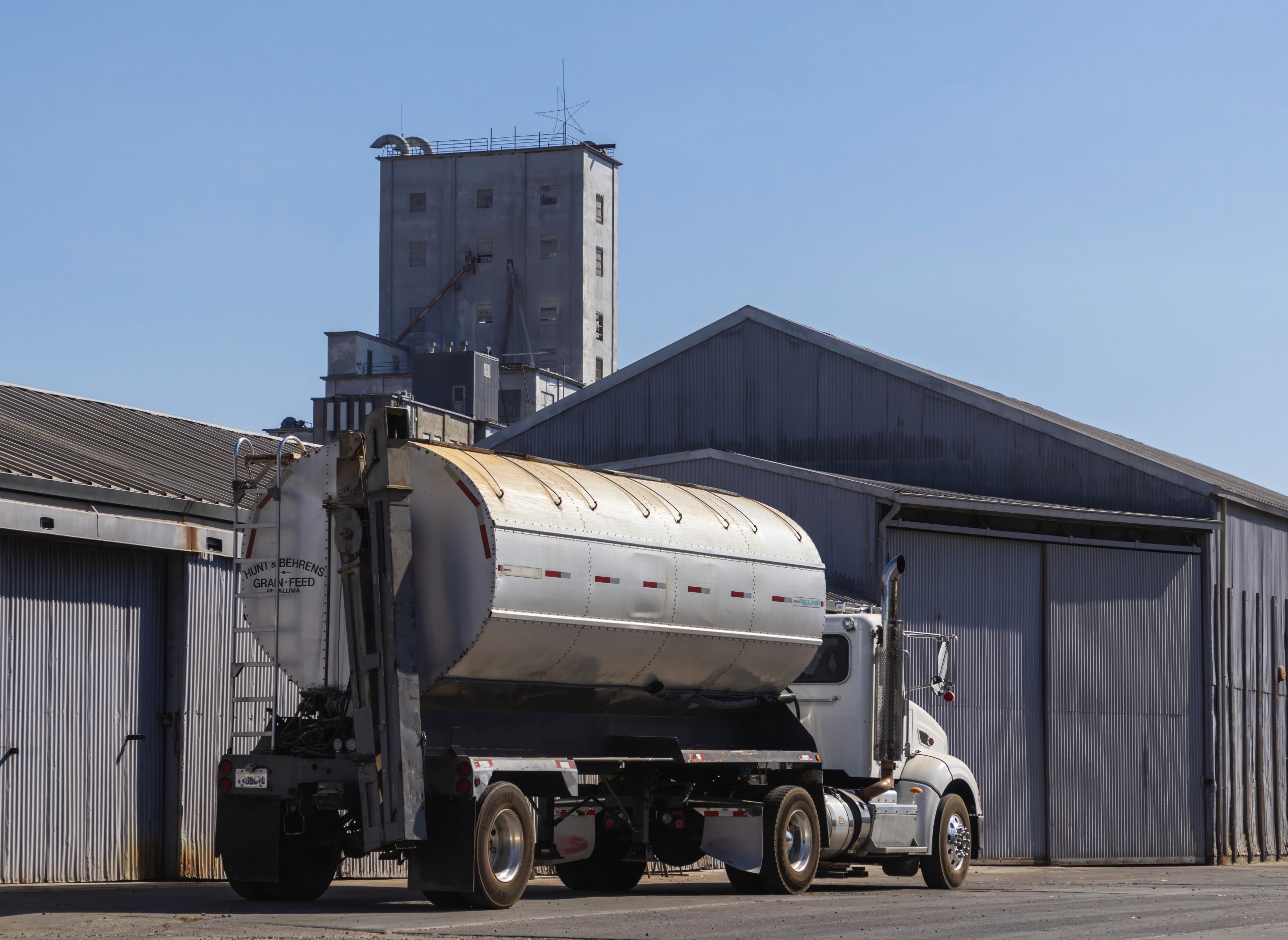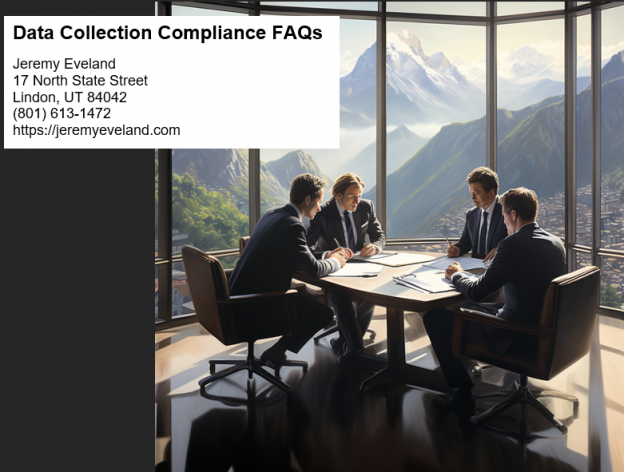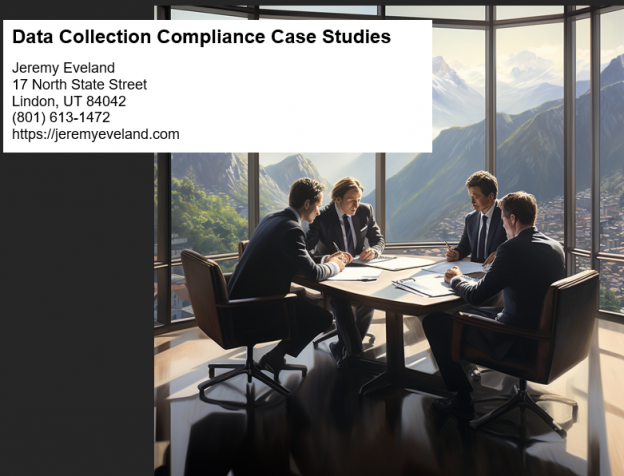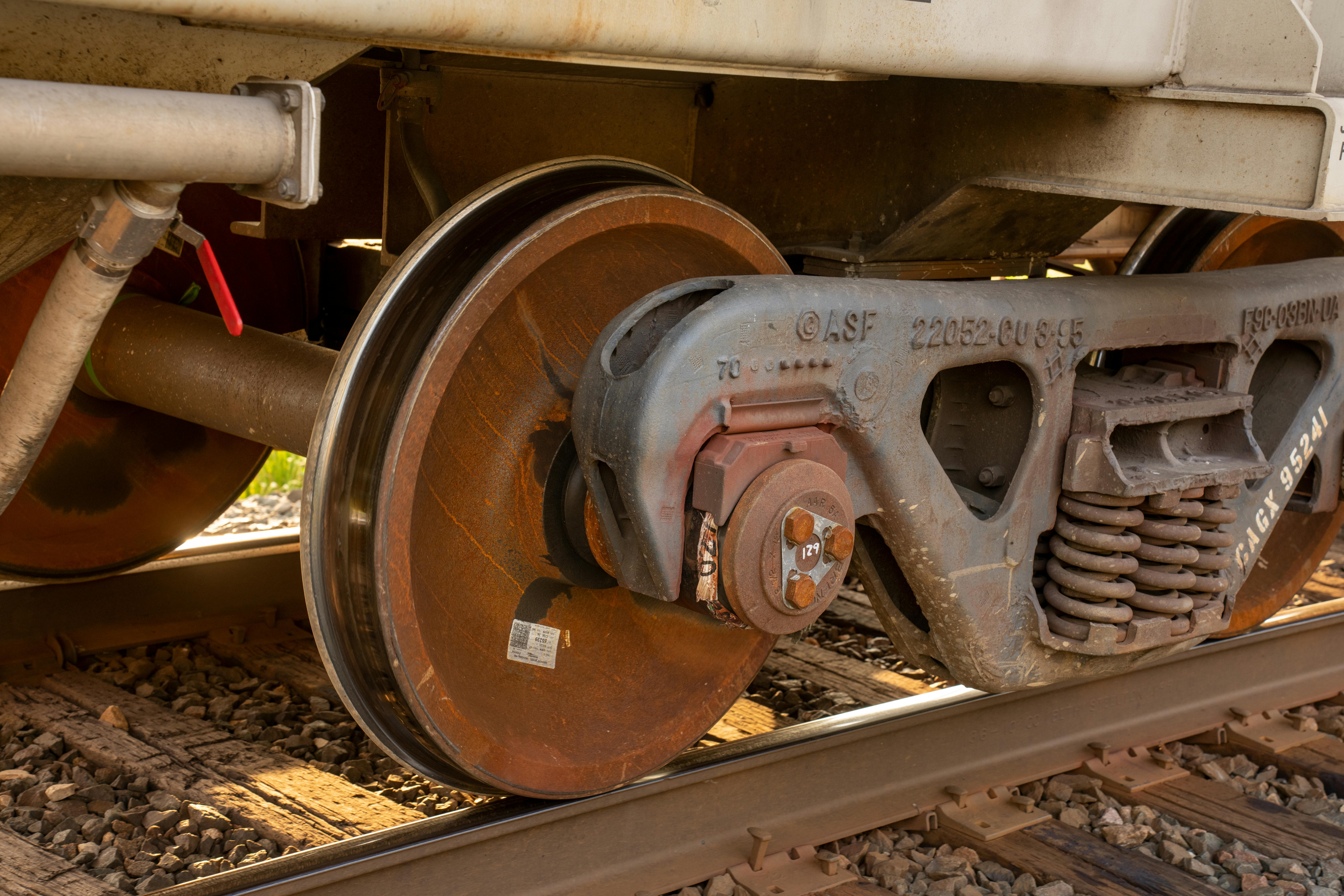Are you facing the aftermath of a trucking accident in Fillmore, Utah? Look no further, because our Truck Accident Lawyer is here to assist you. Dealing with the complexities of a personal injury case can be overwhelming, but with our expertise and experience, we will be your legal advocate every step of the way. Our goal is to ensure that you receive the compensation you deserve for your injuries and losses. Whether you’re wondering about the legal process, potential damages, or how to prove fault, we’ve got you covered. Contact us today for a consultation and let us fight for your rights.
What to do after a truck accident
Being involved in a truck accident can be a traumatic and overwhelming experience. In the aftermath of such an event, it’s crucial to take specific steps to protect yourself and ensure that you have the necessary evidence to support your case. Here are some important actions to take after a truck accident:

Seek medical attention
Your health and well-being should always be the top priority after a truck accident. Even if you think you haven’t sustained any serious injuries, it’s essential to get a comprehensive medical evaluation. Some injuries, such as internal bleeding or whiplash, may not manifest immediately and could worsen over time if left untreated. Documenting your injuries is crucial for both your well-being and your legal case.
Call the police
Contacting the police is vital after a truck accident, as they will create an official report of the incident. This report will serve as an important piece of evidence when determining liability and seeking compensation. Cooperate fully with the police officers by providing them with accurate and detailed information about the accident.
Gather evidence at the scene
While waiting for the police to arrive, it’s essential to gather as much evidence as possible at the scene of the accident. Take photos or videos of the vehicles involved, any visible injuries, and the overall scene. Note down the weather conditions, road conditions, and any other relevant factors that may have contributed to the accident. This evidence can be invaluable when building your case.
Exchange information with the truck driver
Make sure to exchange contact and insurance information with the truck driver involved in the accident. Obtain their full name, phone number, address, driver’s license number, insurance provider, and policy number. Additionally, collect information from any other parties involved, such as witnesses or passengers. Having this information will assist your attorney in investigating the accident.
Document injuries and damages
Keep a record of all your injuries and the damages to your vehicle. This includes medical bills, doctor’s reports, prescriptions, and any other relevant documentation. It’s essential to document the extent of your injuries and how they have impacted your life, such as physical pain, emotional distress, or limitations on your daily activities. This documentation will help support your claim for compensation.
Contact your insurance company
Notify your insurance company about the accident as soon as possible. Cooperate with any requests they may have and provide them with accurate information. However, it’s important to note that insurance companies are primarily concerned with minimizing their own financial liabilities. Therefore, it’s advisable to consult with a truck accident lawyer before providing a recorded statement or accepting a settlement offer from the insurance company.
Now that you have a clear understanding of what to do after a truck accident, it’s important to understand the next steps involved in determining liability.
Determining liability in a truck accident
When it comes to establishing liability in a truck accident case, several factors must be considered. Here are some parties that may be held responsible for a truck accident:
Negligence of the truck driver
One of the primary factors to consider is the negligence of the truck driver. Did the driver fail to exercise reasonable care, resulting in the accident? Common forms of negligence by truck drivers include distracted driving, driving under the influence, fatigued driving, or disregarding traffic laws. If the driver’s actions or inactions directly caused the accident, they may be held liable for your injuries and damages.
Employer’s responsibility
In many truck accident cases, the truck driver’s employer may also bear liability for the accident. Employers have a duty to hire qualified and competent drivers, provide appropriate training, and ensure their drivers comply with federal regulations. If the employer failed to uphold these responsibilities, they may be held accountable for the accident and your injuries.
Manufacturer or maintenance company negligence
Truck accidents can also be caused by defective parts or inadequate maintenance. If a defective part, such as faulty brakes or a defective steering system, contributed to the accident, the manufacturer of that part may be held liable. Similarly, if a maintenance company failed to properly service or repair the truck, resulting in mechanical failures that led to the accident, they may share in the responsibility.
Government entity liability
In some cases, a government entity may be held liable for a truck accident. Poorly designed roads, inadequate signage, lack of traffic signals, or improper maintenance of roadways can all contribute to accidents. If it can be demonstrated that the government entity’s negligence played a role in the accident, they may be held responsible for your injuries and damages.
Multiple parties involved
It’s important to note that liability in a truck accident case is not always limited to a single party. Multiple parties may share in the responsibility, and it’s crucial to identify all potentially liable parties to ensure you can pursue maximum compensation for your injuries and damages. An experienced truck accident lawyer can assist you in determining liability and building a strong case.
Having explored the key factors in determining liability, let’s delve into the investigative process involved in a truck accident case.
Investigating a truck accident
Investigating a truck accident requires a comprehensive examination of various aspects of the incident. Here are some key steps involved in the investigative process:
Obtaining the accident report
The accident report created by the police is a crucial piece of evidence in any truck accident case. It contains valuable information such as the identification of the parties involved, statements from witnesses, and the officer’s assessment of the accident scene. Your attorney will obtain a copy of the accident report and review it to identify any inconsistencies or additional evidence.
Analyzing skid marks and debris
Skid marks and debris at the accident scene can provide valuable insights into the cause of the accident. By carefully analyzing these physical evidence, an expert can determine how the accident unfolded, the speed at which the vehicles were traveling, and whether any evasive actions were taken. This analysis can help establish liability and prove negligence.
Reviewing truck maintenance records
The maintenance and inspection records of the truck involved in the accident can be critical in determining liability. Regular and proper maintenance is essential to ensure the safe operation of a commercial truck. By reviewing these records, investigators can identify any lapses in maintenance or repairs that may have contributed to the accident.
Examining driver qualification files
Truck drivers are required to meet strict qualifications and adhere to federal regulations. Investigating the driver’s qualification files can reveal any deficiencies in their training, experience, or compliance with these regulations. This step is essential in determining whether the driver and their employer followed proper protocols and whether their actions played a role in the accident.
Interviewing witnesses
Eyewitness testimony can greatly impact the outcome of a truck accident case. Investigators will interview witnesses to gather their firsthand accounts of the accident. These interviews can help establish the sequence of events leading to the accident and whether any party involved acted negligently. Witness testimony can significantly strengthen your case and increase your chances of receiving fair compensation.
Now that we understand the investigative process, let’s discuss the potential injuries and their consequences that can result from a truck accident.
Truck accident injuries
Truck accidents can cause severe and life-altering injuries due to the sheer size and force involved. Here are some common injuries that can result from a truck accident:
Common injuries in truck accidents
- Head and brain injuries: Traumatic brain injuries, concussions, and skull fractures are common when a truck accident involves a severe impact. These injuries can have long-term consequences and may require extensive medical treatment.
- Spinal cord injuries: The force of a truck collision can cause spinal cord injuries, leading to partial or complete paralysis. These injuries often require lifelong medical care and significant lifestyle adjustments.
- Bone fractures: Fractures are common in truck accidents due to the immense force exerted on the body. Broken bones can be not only painful but also require lengthy recovery periods and ongoing medical treatment.
- Internal injuries: The impact of a truck accident can cause internal injuries, such as organ damage or internal bleeding. These injuries may not be immediately apparent and can be life-threatening if left untreated.
- Soft tissue injuries: Whiplash, sprains, strains, and other soft tissue injuries are prevalent in truck accidents. Although these injuries may not be immediately apparent, they can cause significant pain and require lengthy rehabilitation.
Long-term consequences
Truck accident injuries can have long-term consequences that extend far beyond the immediate aftermath of the accident. Depending on the severity of the injuries, individuals may experience ongoing pain, limited mobility, and emotional distress. Long-term consequences may include:
- Chronic pain: Some truck accident injuries can lead to chronic pain, impacting an individual’s overall quality of life. This can limit their ability to engage in daily activities, work, or participate in hobbies and recreational activities.
- Disability and reduced mobility: Severe injuries, such as spinal cord injuries or limb amputations, can result in permanent disability and reduced mobility. These conditions may require ongoing medical care, assistive devices, and modifications to living arrangements.
- Emotional and psychological trauma: Truck accidents can cause significant emotional and psychological distress, including post-traumatic stress disorder (PTSD), anxiety, and depression. These mental health conditions can affect an individual’s ability to function in their daily lives and may require therapy or counseling.

Recovering medical expenses
Recovering from truck accident injuries often involves significant medical expenses. Medical bills can quickly accumulate, especially if the injuries require surgeries, hospital stays, rehabilitation, and ongoing treatment. Seeking compensation for your medical expenses is essential for relieving the financial burden and ensuring you have access to the necessary medical care.
Lost wages and future earning capacity
Truck accidents can have a substantial impact on a person’s ability to work. Serious injuries may require an extended absence from work, resulting in lost wages. Additionally, if the injuries result in a reduced capacity to perform your job or if you are unable to return to your previous occupation altogether, you may be entitled to compensation for the loss of future earning capacity.
Understanding the potential injuries and their consequences is important when determining the level of compensation you may be entitled to. Proving negligence is a crucial aspect of any truck accident case, so let’s explore the key elements involved in proving negligence.
Proving negligence in a truck accident case
To recover damages in a truck accident case, it’s necessary to establish negligence on the part of the responsible party. Here are the key elements involved in proving negligence:
Duty of care
Duty of care refers to the legal obligation of an individual or entity to act reasonably and refrain from actions that may cause harm to others. In the context of a truck accident case, the truck driver, as well as their employer and other potentially liable parties, owe a duty of care to other motorists on the road. They are expected to operate the truck safely and adhere to all applicable laws and regulations.
Breach of duty
To prove negligence, it must be shown that the responsible party breached their duty of care. This can be demonstrated by establishing that the driver, employer, or other party acted carelessly, recklessly, or in violation of applicable laws and regulations. For example, if the truck driver was texting while driving or operating the vehicle under the influence of drugs or alcohol, they would be considered to have breached their duty of care.
Causation
Causation is a crucial element in proving negligence. It must be established that the breach of duty directly led to the accident and the resulting injuries and damages. This requires demonstrating that the responsible party’s actions or inactions were the proximate cause of the accident and that the injuries would not have occurred without their negligence.
Damages
In a truck accident case, damages refer to the injuries, physical and emotional pain, financial losses, and other negative consequences suffered by the victim. To prove negligence, it must be shown that these damages are a direct result of the responsible party’s breach of duty. Documenting and presenting evidence of your injuries, medical bills, lost wages, and other damages is crucial in establishing the extent of your losses.
Successfully proving negligence is best achieved with the assistance of a skilled truck accident lawyer. Now that we understand the process of proving negligence, let’s explore the statute of limitations for truck accident lawsuits.
Statute of limitations for truck accident lawsuits
The statute of limitations refers to the time limit within which a lawsuit must be filed. In the context of truck accident lawsuits, it’s important to be aware of the specific time restrictions imposed by state law. Here’s what you need to know:

Understanding the time limit to file a lawsuit
Each state has its own statute of limitations for personal injury claims, including truck accident lawsuits. These time limits vary and can range from one to six years from the date of the accident or discovery of the injuries. It’s crucial to consult with a truck accident lawyer as soon as possible to ensure you do not miss the deadline for filing your claim.
Exceptions to the statute of limitations
There are certain circumstances in which exceptions to the statute of limitations may apply. These exceptions, known as tolling or extending the statute of limitations, are typically based on factors such as the age of the injured party, mental incapacitation, or fraud. Consulting with an experienced truck accident lawyer can help determine if any exceptions are applicable to your specific case.
Understanding the statute of limitations is crucial to protect your legal rights and ensure you have sufficient time to pursue a truck accident lawsuit. Now, let’s discuss why hiring a truck accident lawyer is important when seeking compensation.
Why hiring a truck accident lawyer is important
Navigating the legal complexities of a truck accident case can be challenging and overwhelming, especially while dealing with injuries and recovery. Hiring a dedicated truck accident lawyer is essential to ensure your rights are protected and you receive the compensation you deserve. Here are some key reasons why hiring a lawyer is important:
Legal expertise and knowledge
Truck accident laws can be complex, and it takes an experienced lawyer to navigate through the intricacies of these cases. A skilled attorney will have an in-depth understanding of federal and state regulations, as well as the specific laws that apply to truck accidents. Their legal expertise and knowledge will help build a strong case on your behalf.
Investigative resources and experts
Truck accident cases often require extensive investigation to establish liability and gather evidence. A reputable truck accident lawyer will have access to a network of experts, such as accident reconstruction specialists, medical professionals, and industry consultants, who can provide valuable insights and strengthen your case.
Negotiating with insurance companies
Insurance companies are notorious for attempting to minimize their financial liability by offering low settlement amounts. Having a truck accident lawyer by your side ensures that you are not taken advantage of during the negotiation process. Your lawyer will handle all communication with the insurance company and fight for a fair settlement that adequately compensates you for your injuries and damages.
Maximizing compensation
A truck accident lawyer’s primary goal is to ensure you receive maximum compensation for your injuries and damages. They will calculate the full extent of your losses, including medical expenses, lost wages, pain and suffering, and any other applicable damages. With their knowledge and negotiation skills, they will aggressively pursue a fair settlement or take your case to court if necessary.
With the benefits of hiring a truck accident lawyer in mind, let’s explore how they can specifically assist with insurance claims.
How a truck accident lawyer can help with insurance claims
Dealing with insurance companies can be challenging, as they often prioritize their own financial interests over your well-being. Having a truck accident lawyer on your side is crucial to level the playing field and ensure your rights are protected. Here’s how a lawyer can assist with insurance claims:
Filing the insurance claim
A truck accident lawyer will assist you in understanding the insurance claim process and ensure all necessary paperwork is completed accurately and within the required timeframes. They will compile and submit all relevant medical records, bills, and other documentation necessary to support your claim.
Dealing with insurance adjusters
Insurance adjusters are trained to minimize payouts and often employ tactics to undermine your claim. Having a truck accident lawyer handle communications with insurance adjusters can help protect your rights and ensure you aren’t taken advantage of during the negotiation process. Your lawyer will advocate for your best interests and push for a fair settlement.
Reviewing settlement offers
Insurance companies may attempt to offer low settlement amounts to resolve your claim quickly. However, these initial offers may not adequately compensate you for your injuries and damages. Your truck accident lawyer will carefully review any settlement offers, assess their fairness, and advise you on whether to accept or negotiate for a higher amount.
Challenging denied claims
In some cases, insurance companies may deny your claim outright. If this happens, a truck accident lawyer can help you challenge the denial and fight for your right to compensation. They will gather additional evidence, consult with experts, and, if necessary, file a lawsuit on your behalf to ensure you receive the compensation you deserve.
Having discussed the ways in which a truck accident lawyer can assist with insurance claims, let’s address some frequently asked questions about truck accidents.
Frequently asked questions about truck accidents
What damages can I recover in a truck accident case?
If you’ve been involved in a truck accident, you may be entitled to recover several types of damages, including:
- Medical expenses
- Lost wages
- Pain and suffering
- Emotional distress
- Property damage
- Rehabilitation and therapy costs
- Future medical expenses
- Loss of future earning capacity
The specific damages you can recover will depend on the details of your case and the extent of your injuries.
How long will it take to resolve my case?
The length of time it takes to resolve a truck accident case varies depending on the circumstances. Some cases may resolve through settlement negotiations, while others may require litigation, which can prolong the process. Factors that can impact the timeline include the complexity of the case, the willingness of the parties to negotiate, and the court’s schedule if litigation becomes necessary.
Do I need to go to court?
Not all truck accident cases require going to court. In fact, the majority of cases are resolved through negotiated settlements outside of court. However, if a fair settlement cannot be reached, litigation may be necessary to pursue your claim. Your truck accident lawyer will advise you on the best course of action based on the specifics of your case.
How much does it cost to hire a truck accident lawyer?
Most truck accident lawyers work on a contingency fee basis, which means they only get paid if they successfully obtain compensation for you. The fee is typically a percentage of the amount recovered from a settlement or trial verdict. This arrangement allows individuals who may not have the financial means to afford an attorney the opportunity to seek legal representation without upfront costs.
What if the trucking company denies liability?
If the trucking company denies liability for the accident, it does not mean you have no recourse for compensation. In fact, trucking companies often attempt to evade liability in an effort to protect their reputation and financial interests. A skilled truck accident lawyer will investigate the accident thoroughly, gather evidence, and advocate on your behalf to establish liability and hold the responsible parties accountable.
By now, you should have a comprehensive understanding of the necessary steps to take after a truck accident, the process of determining liability, investigating the accident, potential injuries, proving negligence, the statute of limitations, the importance of hiring a truck accident lawyer, and how they can assist with insurance claims. If you or a loved one has been involved in a truck accident in Fillmore, Utah, it’s crucial to contact a trusted and experienced truck accident lawyer to help guide you through the legal process.
Frequently Asked Questions
What damages can I recover in a truck accident case?
In a truck accident case, you may be able to recover damages such as medical expenses, lost wages, pain and suffering, property damage, rehabilitation costs, future medical expenses, and loss of future earning capacity.
How long will it take to resolve my case?
The length of time to resolve a truck accident case varies depending on the specifics of the case, such as its complexity and the willingness of the parties to negotiate. Some cases may be resolved through settlement negotiations, while others may require litigation, which can prolong the process.
Do I need to go to court?
Not all truck accident cases require going to court. Many cases are resolved through negotiated settlements outside of court. However, if a fair settlement cannot be reached, litigation may be necessary to pursue your claim. A truck accident lawyer will guide you on the best course of action based on the specifics of your case.
How much does it cost to hire a truck accident lawyer?
Most truck accident lawyers work on a contingency fee basis, meaning they only get paid if they successfully obtain compensation for you. The fee is typically a percentage of the amount recovered from a settlement or trial verdict. This arrangement allows individuals to seek legal representation without upfront costs.
What if the trucking company denies liability?
If the trucking company denies liability for the accident, it does not mean you have no recourse for compensation. A truck accident lawyer will conduct a thorough investigation, gather evidence, and advocate on your behalf to establish liability and hold the responsible parties accountable.

















































